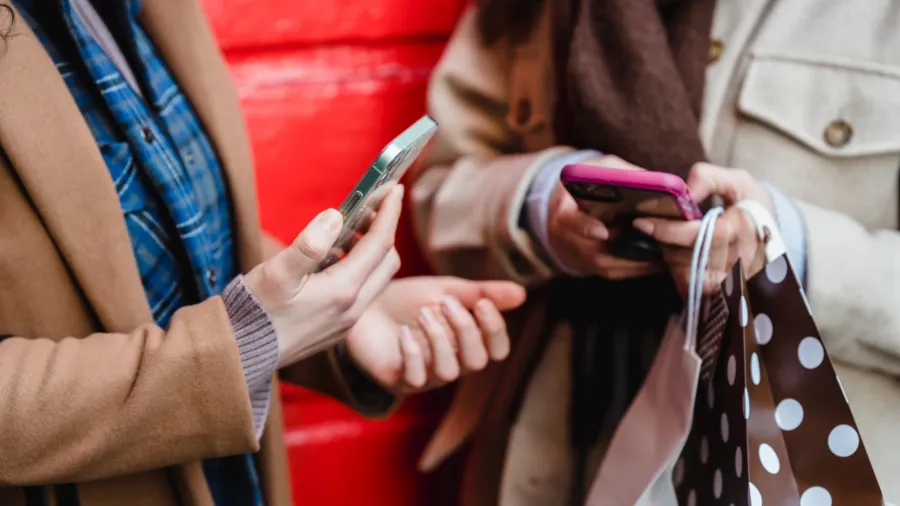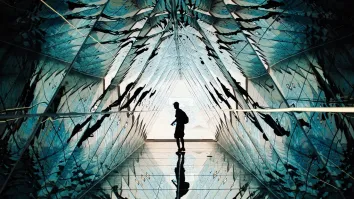
Marketing Briefing: 'Me-First' mindset to drive new consumer trends
“Phygital reality”, a physical and digital experience hybrid, is also making rounds.
Retailers will need to continually adapt to the changing needs of the modern-day consumer, according to the “Top 10 Global Consumer Trends 2021” study of Euromonitor International. Whilst customers are expected to be more open to going back shopping in physical stores, the post-pandemic outlook points to a direction where business models will need to be constantly reviewed.
Research Consultant Radhika Singal said that what is fundamentally changing is how consumers are expecting brands to deliver experiences as a go to market strategy across their journey. Coined as the “Me-First” mindset, it recognizes differentiating one brand from others and carving a niche competitive advantage in consumers’ minds.
“The face of retail is changing to just buying products and services to consuming experiences whether in-store or online. Experiential selling, retailtainment, personalisation and promoting indulgence will be key to cater to the “Me-First” mindset consumer,” she said.
“This includes gamification of marketing activities, live streaming of products and services, and social selling for engagement. Experience economy is nothing new and is a term that has been used for nearly two decades to define experiences such as concerts, festivals, or sports events,” she added.
Singal explained that several luxury brands have leaned on experiences as part of its premium aspirational branding strategy even before COVID-19, but the pandemic has proven to be a catalyst to trickle down experiential selling from luxury to high street.
Some activities offered by luxury brands include virtual try-ons, 3D body scanning for a proper fit, live streaming fashion shows, and broadcasting appointments from the store. Now, this is an expectation from every brand in the marketplace.
Apart from this, consumers are expected to drive their attention to products or services that offer them good value for money.
“The “Me-First” consumer is conscious of the price value equation. Hence, premium to them may not just mean higher price tag or better quality, but rather attributes beyond higher price tag such as comfort, convenience, social and environmental values, eco credentials, health & wellness, self-improvement, personalisation, nostalgia, or uniqueness that an experience creates,” Singal said.
“Businesses need to be constantly adapting, shifting and innovating to appeal to this consumer who is always looking to try new things, asking “what’s new about this”, “what’s different” or “what’s interesting in this for me?”. Brands that can create fun and interest in even the most boring of activities will succeed,” she added.
Another trend that is seen to stay is the strategy of implementing “Phygital Reality.” Singal said that by definition, this is essentially a hybrid of the physical and virtual world, where consumers can seamlessly live, work, shop, and play either in person or online wherever they choose to be.
“The pandemic really accelerated the use of video conferencing, smart appliances, Augmented and virtual reality try-ons, virtual concierge consultations, or live streaming forming new habits around working, shopping, and exercising which are certainly here to stay for the long run. 2021 will indeed see a continued acceleration of integrating virtual processes in physical spaces to give consumers an avenue to engage from the convenience and comfort of their homes,” she said.
AR and VR are seen to replicate in-store shopping experience online while driving exponential e-commerce growth.
One example is Singapore’s home design and furniture company Castlery, which introduced an AR enabled app in April last year that allows consumers to view store’s furniture pieces in their own living spaces to build and shop a virtual home. There is also Decathlon Singapore which launched an in-store Mobile App mid last year completely revamping and digitalising its in-store experience.
According to Singal, there are several such cases in points even outside of Singapore in emerging South East Asia.
“As per Euromonitor’s digital consumer survey 18% people in Indonesia own a VR headset vs. a global average of 11%. Such digital tools make phygital a reality. As per the same survey 35% people in Indonesia have used AR or VR in the past one year vs. a global average of 22% either to preview a holiday destination, tour a hotel room, shop for household items or try on makeup; really a testament to the increasing penetration of such immersive technologies even in the emerging world,” she concluded.








![Cross Domain [Manu + SBR + ABF + ABR + FMCG + HBR + ]](https://cmg-qa.s3.ap-southeast-1.amazonaws.com/s3fs-public/styles/exclusive_featured_article/public/2025-01/earth-3537401_1920_4.jpg.webp?itok=WaRpTJwE)









 Advertise
Advertise


